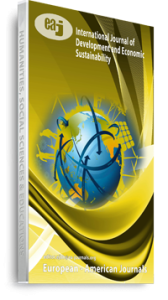Household plastic waste management has emerged as a critical challenge in rapidly urbanizing areas across the globe, including Eldoret City, Kenya. The proliferation of single-use plastics and inadequate waste disposal systems exacerbate environmental degradation and strain local economies. This study explores sustainable strategies for managing household plastic waste to promote socio-economic and environmental sustainability in Eldoret City. Using a desktop research approach, the study examines Eldoret waste management practices, circular economy, stakeholder involvement, and strategies for socio-economic and environmental sustainability. Key findings indicate that the absence of an efficient waste segregation and recycling system, coupled with limited public awareness, contributes to the escalating plastic waste crisis in the city. Innovative strategies such as community-based waste collection, the establishment of plastic recycling centers, and the promotion of circular economy principles are highlighted as viable solutions. Additionally, public-private partnerships, policy reforms, and incentivized waste management programs are essential to enhance participation and accountability among stakeholders. The study emphasizes the socio-economic benefits of effective plastic waste management, including job creation, reduced environmental health risks, and enhanced urban livability. Recommendations include fostering public awareness campaigns, investing in recycling infrastructure, and integrating informal waste collectors into formal systems.
Keywords: circular economy, household plastic waste management, socio-economic sustainability

